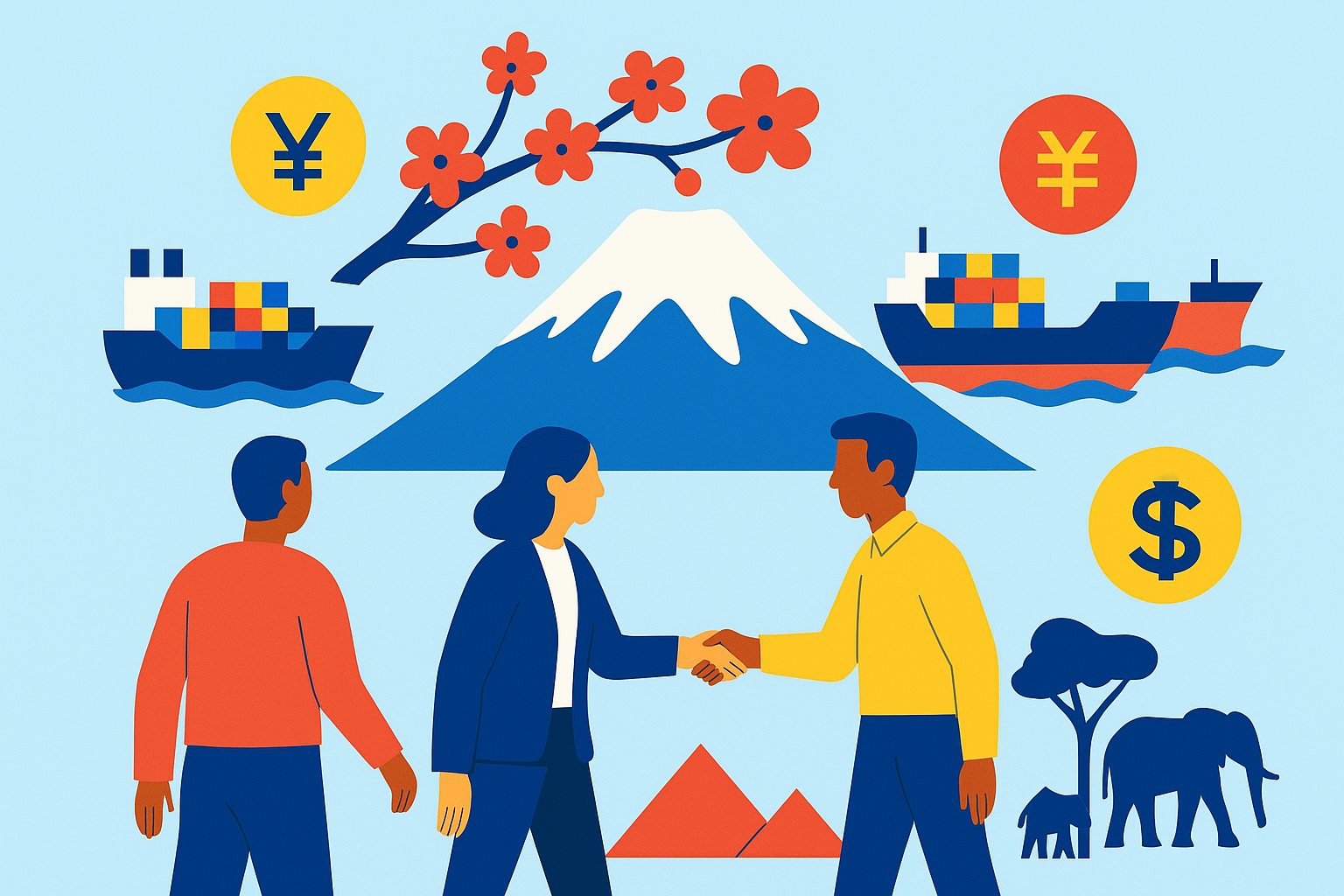Asia Pacific News
LAST UPDATE: May 28, 2025
BOJ’s Ueda calls for vigilance over food inflation risks
BOJ Governor Kazuo Ueda emphasized caution as rising food prices, notably a 90% spike in rice costs, risk pushing inflation beyond the 2% target.
Insight
The BOJ faces a delicate balance between supporting economic growth and controlling inflation. Persistent food inflation, driven by supply-side factors, could necessitate further rate hikes. However, the BOJ prefers sustainable inflation tied to wage increases and domestic consumption over volatile cost-pushed inflation. External factors, such as U.S. trade policies, add to the uncertainty, potentially impacting Japan’s economic outlook.
Japan to provide $15.5bn tariff help to SMEs
Japan announced a $15.5 billion package to support small and medium-sized enterprises (SMEs) affected by tariffs.
Insight
The Japanese government aims to mitigate the impact of global trade tensions on its SMEs, which are vital to the economy. By providing financial assistance, the government seeks to preserve employment and maintain economic stability. This move reflects proactive measures to shield domestic businesses from external shocks, particularly in the face of escalating trade disputes.
Japan Loses Top Creditor Status for First Time in 34 Years
Japan lost its position as the world’s largest creditor nation to Germany, despite posting record overseas assets.
Insight
Japan’s decline in creditor status highlights shifts in global financial dynamics. While Japan’s net external assets reached a record ¥533.05 trillion, Germany surpassed this with ¥569.7 trillion. This change may influence Japan’s economic influence and reflects broader trends in global savings and investment flows. It also underscores the importance of maintaining competitive economic policies to sustain international financial positions.
Stimulus helps drive China’s industrial profits as trade risks loom large
China’s industrial profits increased by 3.0% in April, aided by government stimulus, despite ongoing trade tensions with the U.S.
Insight
The Chinese government’s stimulus measures, including interest rate cuts and liquidity infusions, have bolstered industrial profits, particularly in sectors like new energy and high-end manufacturing. However, state-owned enterprises saw a decline in profits, indicating uneven benefits across different types of firms. The persistent trade tensions with the U.S. pose risks to sustained economic recovery, highlighting the need for structural reforms and diversification of trade partnerships.
China Turns to Consumers to Boost Growth, but Households Are Wary
China is promoting domestic consumption to drive growth, but households remain cautious due to economic uncertainties.
Insight
China’s efforts to shift towards a consumption-driven economy face challenges as households are hesitant to increase spending amidst a weak social safety net, low wages, and a sluggish property market. While government incentives have provided short-term boosts, long-term consumer confidence requires structural reforms, including improved social welfare and financial systems. The cautious approach of households underscores the complexity of transitioning from an export-led to a consumption-led growth model.
China steel subsidies ‘distort’ global market: OECD
The OECD reports that China’s subsidies to its steelmakers are distorting the global market and hindering decarbonization efforts.
Insight
China’s steel subsidies have led to overproduction, with exports reaching a record 118 million tonnes in 2024. This oversupply depresses global prices, undermines foreign competitors, and discourages investment in cleaner technologies. The situation exacerbates trade tensions, prompting calls for coordinated international responses to address market imbalances and environmental concerns.
China Premier Calls on Asean, Gulf States to Create ‘Big Market’
Chinese Premier Li Qiang urges ASEAN and Gulf nations to deepen economic cooperation and remove trade barriers to counter global protectionism.
Insight
Amid escalating trade tensions with the US, China is seeking to strengthen ties with ASEAN and GCC countries, promoting a multilateral trading system centered on the WTO. This strategy aims to create a vast integrated market, enhancing economic resilience and reducing reliance on Western economies. The initiative reflects China’s pivot towards regional alliances to sustain growth and influence.
Thailand Clears Plan to Exit US Intellectual Property Watchlist
Thailand’s cabinet approves a new framework to enhance intellectual property rights enforcement, aiming to be removed from the US watchlist.
Insight
Thailand’s move to strengthen IP enforcement is a strategic effort to improve trade relations with the US and regain benefits under the Generalized System of Preferences. By aligning with international IP standards, Thailand seeks to attract foreign investment and boost its export competitiveness. The initiative underscores the importance of IP protection in global trade dynamics.
Malaysia Sees Reducing the US’s Proposed Tariff to 10% as a Good Outcome
Malaysia considers a US proposal to reduce tariffs to 10% as a positive development amid ongoing trade negotiations.
Insight
Facing potential high tariffs from the US, Malaysia views the proposed 10% rate as a favorable outcome, reflecting a willingness to compromise. The situation highlights the complexities of US-Malaysia trade relations and the broader challenges of navigating protectionist policies. Malaysia’s proactive engagement indicates its commitment to maintaining strong economic ties with the US.
Nuclear option: Indonesia seeks to grow energy, cut emissions
Indonesia plans to develop nuclear energy to meet rising demand and reduce emissions, despite facing significant challenges.
Insight
Indonesia’s pursuit of nuclear power aims to diversify its energy mix and achieve climate goals. However, the initiative faces hurdles, including public skepticism, regulatory issues, and the country’s vulnerability to natural disasters. Success will depend on addressing safety concerns, securing investment, and building public trust. The move signifies Indonesia’s commitment to sustainable energy, aligning with global decarbonization efforts.


